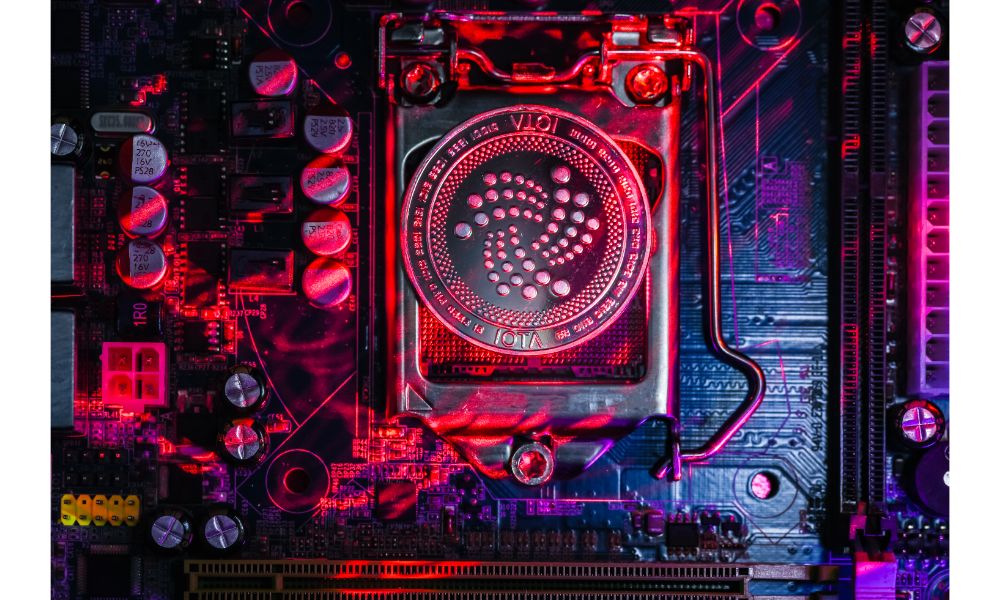- Validators in IOTA 2.0 play a pivotal role in ensuring network security, efficiency, and decentralization.
- Becoming a validator is an inclusive and straightforward process, promoting democratic validation.
In the ever-evolving realm of blockchain technology, IOTA 2.0 has emerged as a trailblazer, and at the heart of its decentralized ledger system lies a group of unsung heroes known as Validators. These dedicated individuals are the vanguards of network security and integrity, tirelessly safeguarding the IOTA ecosystem. In this article, we’ll dive into the world of Validators, exploring their multifaceted functions, the benefits they bring to IOTA 2.0, and the process of becoming one.
In our report on the recent developments of IOTA 2.0, we shine a spotlight on the significant tweet from @iota, which encapsulates the essence of this groundbreaking technology.
🌐In #IOTA 2.0, validators are nodes that issue validation blocks to enable the network to agree on the ledger state and the set of valid blocks in the Tangle. Check our Wiki article to learn more about validators, their selection and rotation. 🔗https://t.co/rMWZba9pds
— IOTA (@iota) October 19, 2023
The Role of Validators in IOTA 2.0
Validators are the backbone of IOTA 2.0’s consensus mechanism. They are responsible for issuing validation blocks, resolving double spends, determining block inclusion, and finalizing slot commitments, all of which are crucial for the network’s security and stability. What sets IOTA’s validator system apart is its openness – anyone can step up to become a validator.
The consensus mechanism in IOTA 2.0 operates on the concept of “epochs,” each with its own committee of validators. These committees are essential for securing the network, and in return for their efforts, validators receive Mana rewards at the end of each epoch. To maintain efficiency, the committee’s size is limited, preventing unnecessary delays in transaction confirmation times.
Validators and their committees bring several key advantages to IOTA 2.0. They ensure the network’s security by preventing double spending and manipulation of the consensus. All nodes in the network rely on the decisions made by these committees, promoting trust in the system.
Efficiency is another noteworthy benefit. Validators contribute to swift block approvals, reducing computational costs and confirmation times. Moreover, IOTA 2.0 promotes decentralized democracy through its validator system, allowing more nodes to participate without a minimum stake requirement. Users can also delegate their stake to trusted validators, fostering a democratic validation process.
Becoming a Validator in IOTA
Becoming a validator in IOTA 2.0 is a straightforward process. Node operators can register as validators through a simple, one-time registration process. After registration, their nodes have the chance to be selected as validators. Token holders who prefer not to become validators can delegate their voting power to trusted validator nodes, earning Mana rewards. This delegation is flexible and can be changed at any time.
Validator committees are formed by selecting active stakeholders with the largest measured stake. These stakeholders must register as validators before the epoch begins and remain active during a specific period. The selection process is temporary and will transition to random selection, further enhancing network decentralization.
Validators have critical responsibilities, including issuing blocks, referencing validation blocks, ensuring correct voting alignment, and committing to slots promptly. These tasks are essential for a smoothly functioning network. Validators receive rewards in the form of Mana, with the reward size determined by various factors, including the validator’s stake and the voting power delegated to them by third parties.
While validators play a crucial role, they may encounter challenges like censorship attempts and manipulation. IOTA 2.0 has implemented preventive measures to counter these issues, ensuring network security and integrity.




